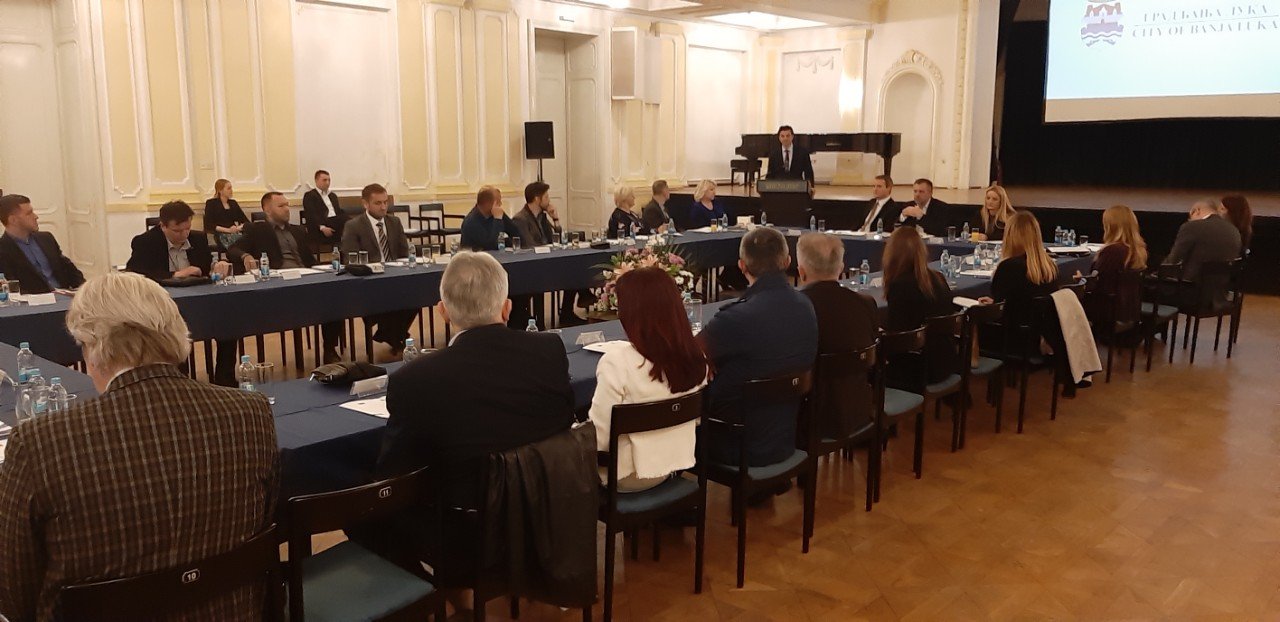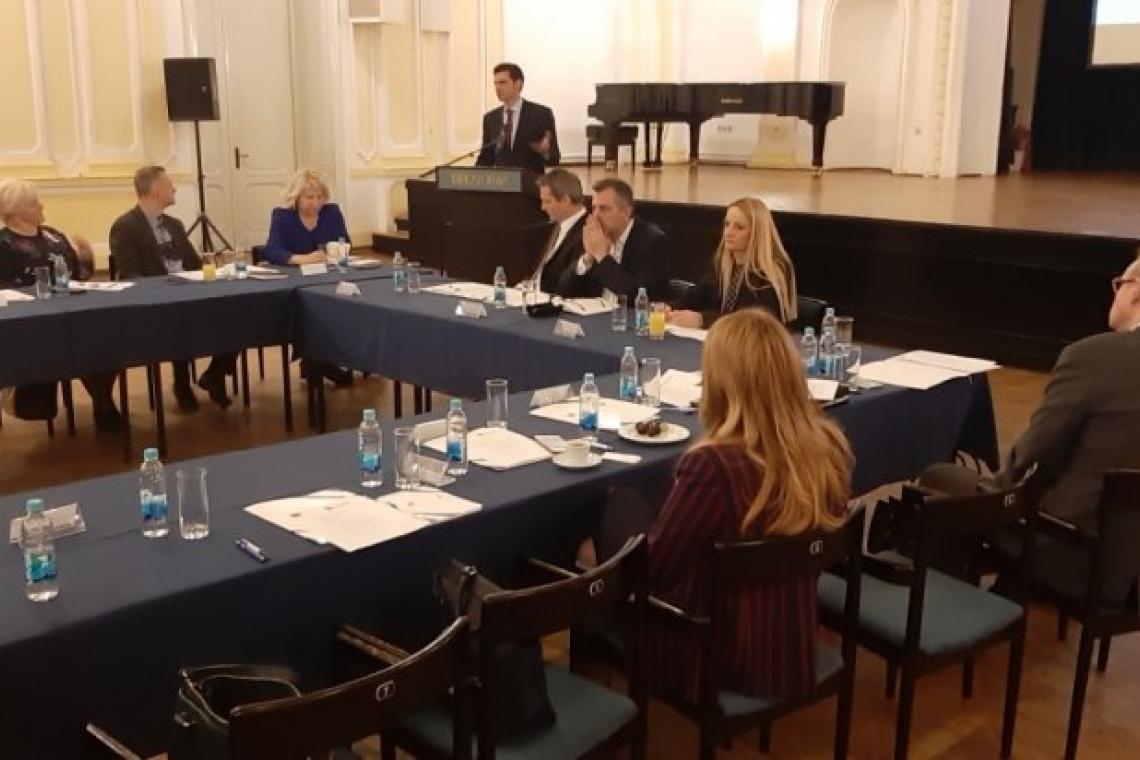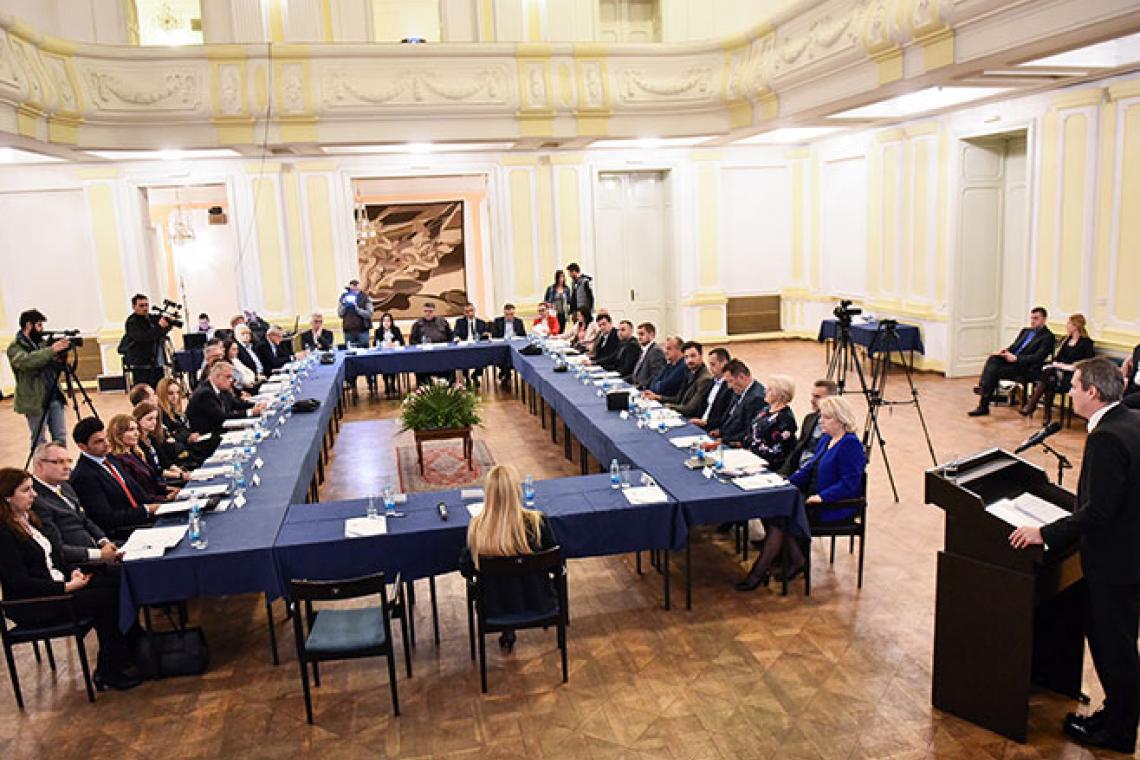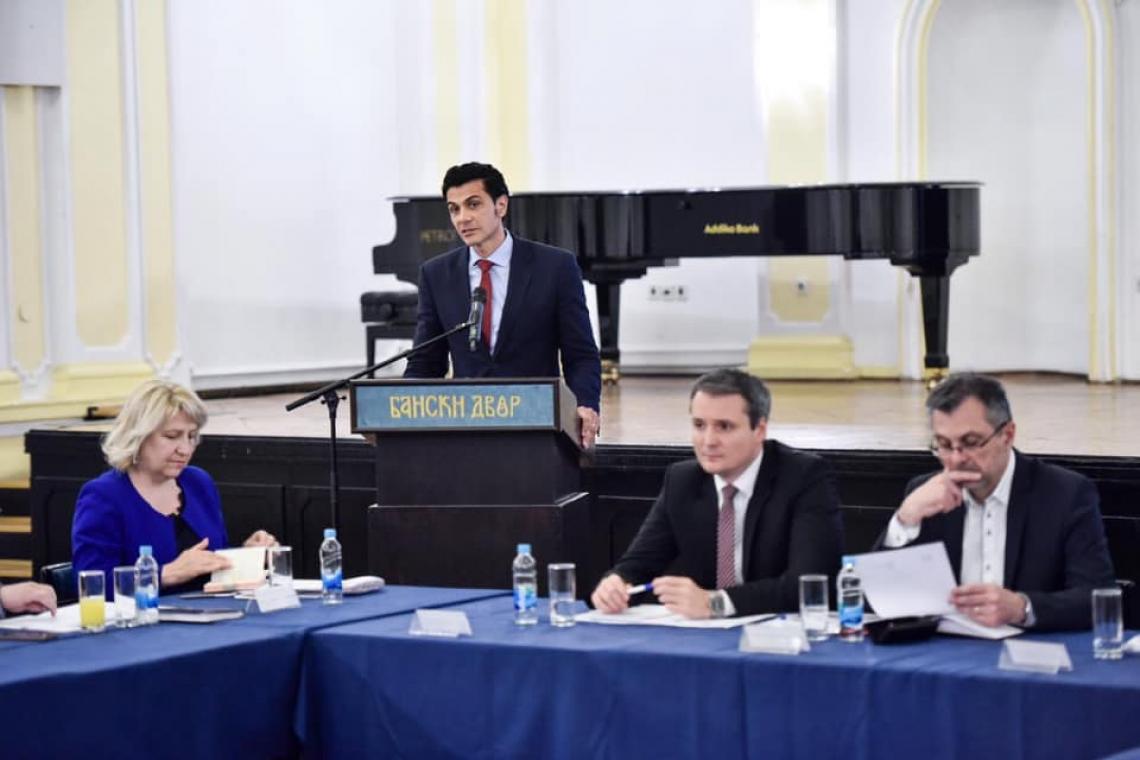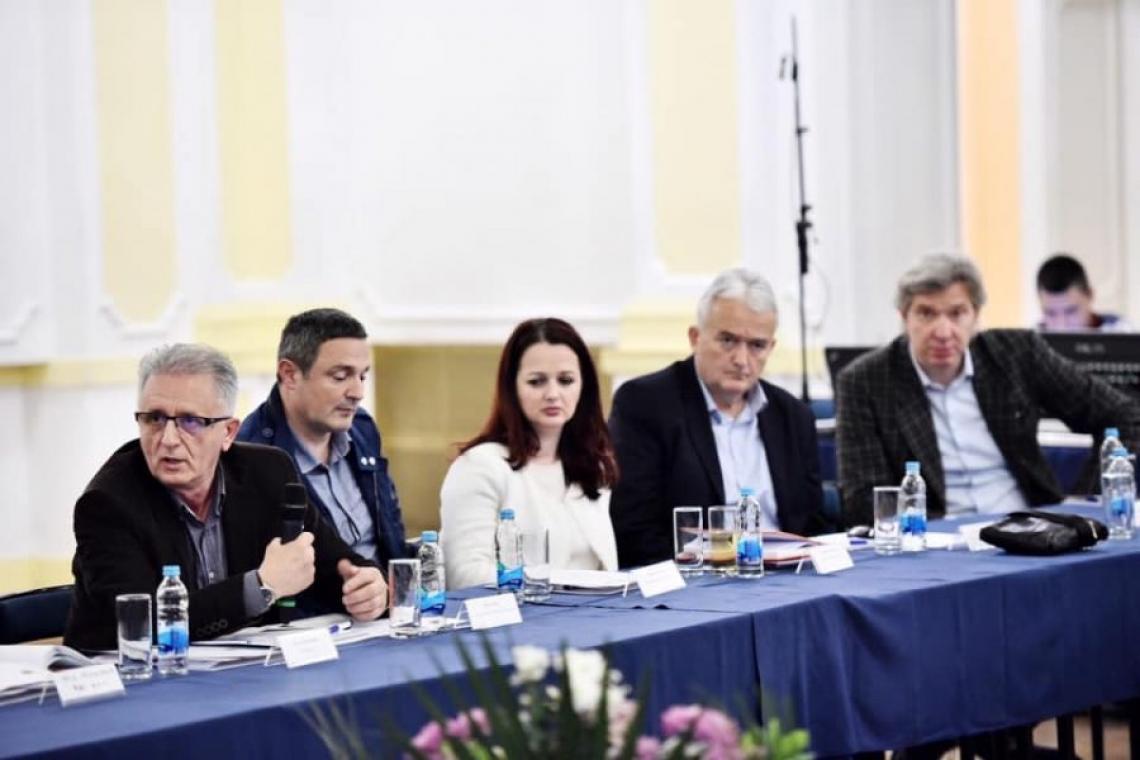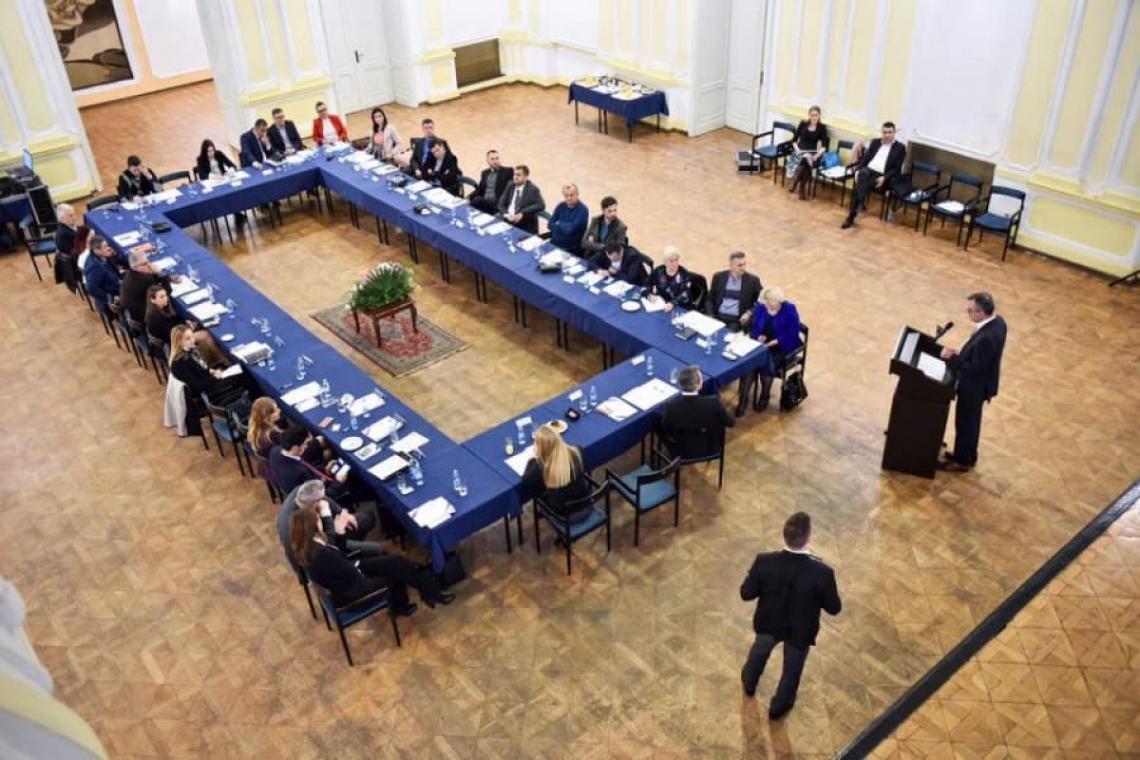Swiss assistance for improving the educational models of the Republic of Srpska continued with another visit by Philip Reber, a dual education expert. In Banja Luka at the beginning of April, he visited the "Pilot Project of Dual Education" conference, reporting on the necessary steps he saw during his first visit at the end of the last year.
The lack of skilled workers, need to invest in knowledge in order to achieve a surplus value, are the key guidelines of Reber's report. The education of employees who would be trained for further improvement of their work, through the transfer of knowledge - the so-called "training of trainers" - is the most necessary step at the moment, said the Swiss expert based on the insight gained through the interview with all relevant subjects of the economy of Republika Srpska, from educational institutions till the relevant authorities.
The President of the Banja Luka City Assembly, Zoran Talic, thinks that the Government of the Republic of Srpska should monitor the experiences from the region, influencing the creation of the best legal solutions for the introduction of dual education. At the same time, at the session of the City Assembly in May, Talic announced the consideration of the proposal to adapt the Workers University to that purpose.
Director of the Workers University Bosiljka Radic says that the idea of transforming the house that she heads can significantly contribute to the dynamics and quality of solving the difficulties of the lack of qualified workers in Banja Luka and beyond.
Gabriela Grujić, Deputy Minister of Education, Science and Technological Development of the Republic of Serbia, visiting the conference in Banja Luka, shared her experiences from her country as a positive example and conviction that the Republika Srpska can achieve the same results in the development of dual education.
- In Serbia, dual education is recognized as a model-way of acquiring knowledge and is being implemented at all levels in secondary and higher education - said Gabrijela Grujić, explaining that Serbia has opted for the duality of education which implies that students acquire theoretical knowledge in schools, faculties or at vocational schools, and that practical aspects of expertise in terms of modern technological development are seen and learned in companies.
Regional businessman Edin Dacic, together with the organization "i-platform", mediated the arrival of Filip Reber in Banja Luka, agreed that the introduction of a dual education system is one of the prerequisites for improving the situation in the economy of the Republic of Srpska.
- Each employer has an interest in having more productivity for every employee, which allows him to pay higher salaries - said Dacic for the media. - It would prevent the brain drain of people from these areas.
Representatives of the academic community, faculty deans, activists of secondary school directors, representatives of trade unions and associations of employers of the Republic of Srpska were present at the conference "Pilot project of dual education" held at the beginning of April in Banja Luka.

